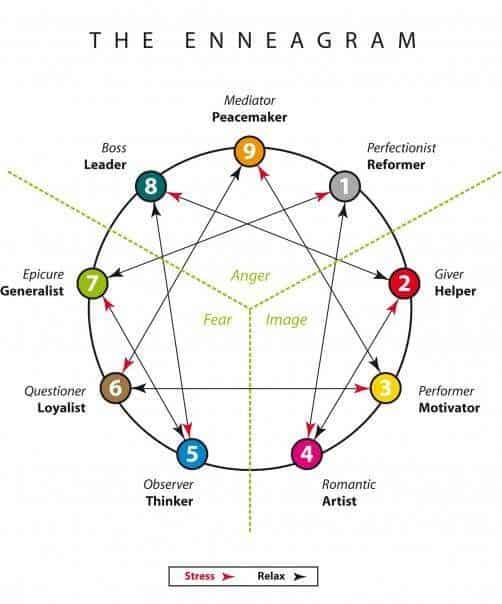Over the course of the past year or so, there’s a pretty good chance you’ve been in conversations, or scrolling on social media, and heard someone mention the Enneagram.
The Ennea-what? This long-standing tool has re-gained momentum and popularity within the past couple of years. So, with all the hype—what is it exactly, and how can it help you grow?
What is the Enneagram?
The Enneagram is a personality typology that consists of 9 different “types”, categorized by number. Each number details core characteristics of a specific “type”– such as fears, desires, passions, sins, and virtues– as well as how that type responds in seasons of stress and growth.
The purpose of the Enneagram is to help us recognize patterns of behavior that are keeping us from becoming the truest version of ourselves.
Chris Heuertz, Enneagram coach and author of the book “The Sacred Enneagram: Finding Your Unique Path to Spiritual Growth” describes the Enneagram as a “map to self-liberation.”
Heuertz uses the analogy of a house to differentiate three personality typologies: the Myers Briggs Type Inventory (MBTI), Strengths Finder, and the Enneagram. In his analogy, Heuertz describes the MBTI as the “specific room we stay in, while Strengths Finder is the way we decorate our room. The Enneagram is the kind of home we build.”
Uncovering Your Enneagram Type
When trying to identify your Enneagram type, there are a few ways to do it…
Officially, you can take a test that will sort your compatibility with different types, but I have found many people can identify themselves by reading descriptions of each number.
Any misidentification often comes from considering a person’s external behavior, rather than their internal motivations. For this reason, it isn’t always accurate to have family or friends tell you your type, as it may be based on how you show up in the world.
When considering our own health and wellness, personality typologies such as the Enneagram are only a piece of the puzzle. While they cannot predict your life or take into account events and experiences, they may give you insight into behavior that is keeping you from the life you want or highlight places of health.
And, in conjunction with counseling, the Enneagram can be a powerful tool to foster self-exploration!
Resources
If you’re looking to learn more about the Enneagram, the following resources are a great place to start:
- The Enneagram Institute
- The Sacred Enneagram: Finding Your Unique Path to Spiritual Growth
by Chris Heuertz - The Road Back to You: An Enneagram Journey to Self-Discovery by Ian Morgan Cron and Suzanne Stabile
- The Enneagram: A Christian Perspective by Richard Rohr
- The Complete Enneagram by Beatrice Chesnut

Courtney Hintermeyer
APC
Learn more about Courtney →

